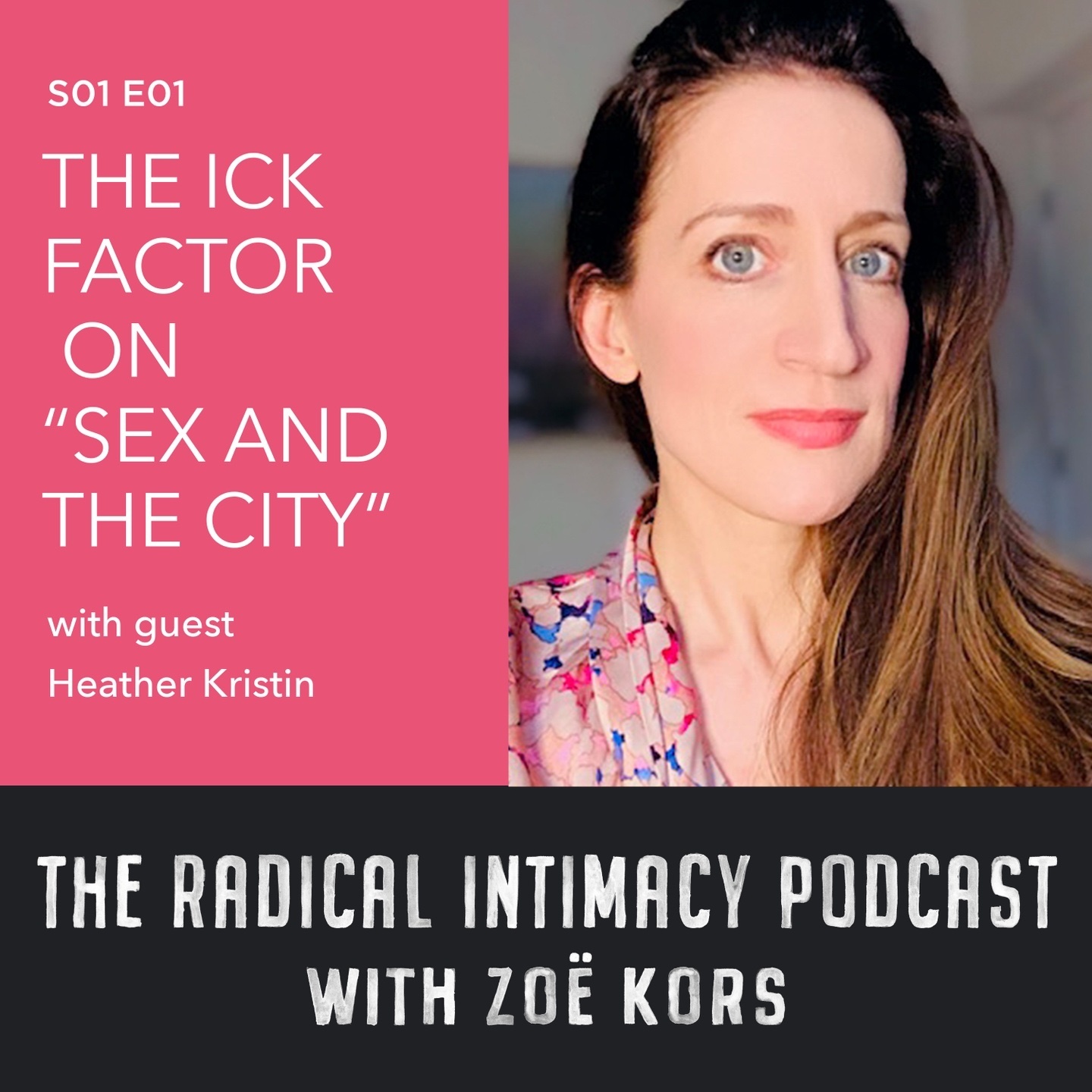
Episode S01E01:
The Ick Factor on “Sex and the City” with Heather Kristin
Author and activist, Heather Kristin has been interviewed by Oprah and has worked many jobs over the years, including Park Avenue nanny, subway busker, and cocktail waitress, but one that stands out is her role as stand-in for Kristin Davis’ character on the set of Sex and the City (SATC). In February 2021, Heather exposed the toxic atmosphere on set by penning a detailed essay for the Independent. In the candid memoir that quickly went viral, she recalled an incident of an ‘alpha male actor’ demanding that another stand-in be “tied up, gagged, and brought to his trailer.” These horrific words have now been confirmed by Heather to be those of Chris Noth, who played Mr. Big on the show. In today’s episode, Heather shares her story with us and recalls some of the experiences (both negative and positive) that she had on set at SATC. We discuss the nuance of experience that leads survivors to remain in traumatic spaces or choose not to speak up, why it is that we keep hearing stories like these, and Heather shares how she seeks to empower young women and girls through her work with Girls Write Now. This is a conversation about finding and using our voices, the power of sharing our stories and learning from the stories of others, so make sure to tune in today to hear from storyteller and truth seeker, Heather Kristin!
Key Points From This Episode:
- Heather recalls some of the positive experiences she had working with the SATC cast.
- Learn what a stand-in does and why they play an integral role on set.
- The incredible opportunity Heather had to be in front of the camera with her violin.
- Heather shares her candid account of the ‘dark’ moments she experienced on set.
- The nuance of Heather’s experience that led her to return to SATC after quitting.
- How her now viral article detailing Noth’s behavior was originally received by editors.
- Why she decided to name Noth after the sexual harassment allegations that came out.
- Heather’s reaction to the statement that the women of SATC made following the allegations against Noth that surfaced.
- Why she believes that we keep hearing these stories; the power dynamics at play.
- How we can appropriately respond to allegations like these: acknowledge, investigate, stop the retaliation against survivors.
- Heather’s work with Girls Write Now and how she seeks to empower young women.
- The power of sharing our stories and learning from the stories of others.
- Heather’s favorite and least favorite words (yes and no), her love for DuMont Burger in Brooklyn, the sound of the violin, and more!
- Parting words of wisdom: choose kindness rather than words that tear people down.
Tweetables:
“Chris Noth really knew his power, and he wanted us to know about his power. I really think it was just about the power.” — @HeatherRKristin [0:12:42]
“I told that story in February because I’ve been telling it my whole life. I did not want to hurt the production. I wanted it to go forward, but I also wanted people to know what this man was capable of.” — @HeatherRKristin [0:20:47]
“Women have been silenced for way too long and it’s time for us to stand up and say, ‘This is enough.’” — @HeatherRKristin [0:21:05]
“Number one, acknowledge that it happened. Number two, investigate and ask victims and survivors of sexual harassment how to develop effective solutions. Number three, stop the retaliation when survivors come forward.” — @HeatherRKristin [0:26:42]
“Through us telling our stories, we were able to really see each other, and grow, and learn, and become more powerful and not afraid to share our stories.” — @HeatherRKristin [0:30:29]
Links Mentioned in Today’s Episode:
‘I was Charlotte’s stand-in on Sex and the City. Some of the behavior I saw still shocks me’
'Chris Noth’s behavior on set for ‘Sex and the City’ was disgusting. I know — I was there’
Believing: Our Thirty-Year Journey to End Gender Violence by Anita Hill
Zoë Kors’ Links:
Zoë’s Book: Radical Intimacy
Resources:
RAINN (Rape, Abuse & Incest National Network)
National Sexual Abuse Telephone Hotline: 800-656-HOPE (4673)

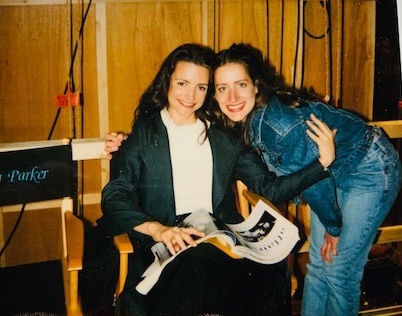
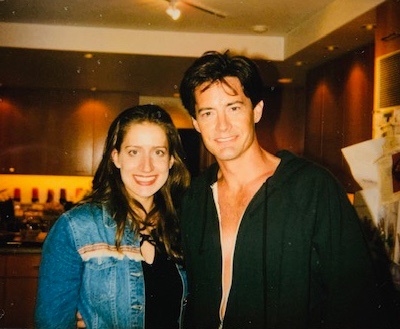
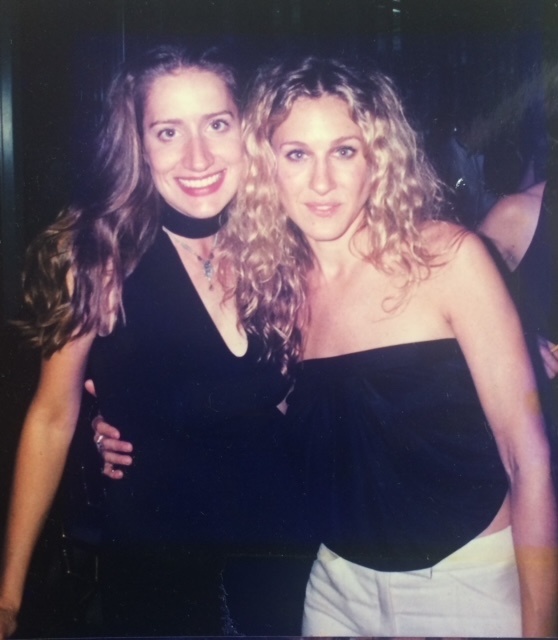
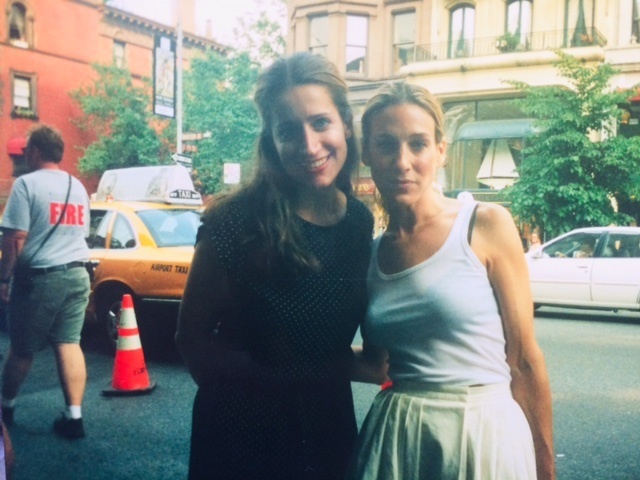
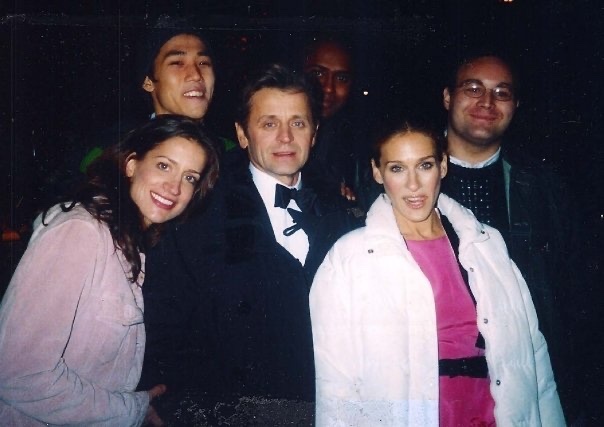
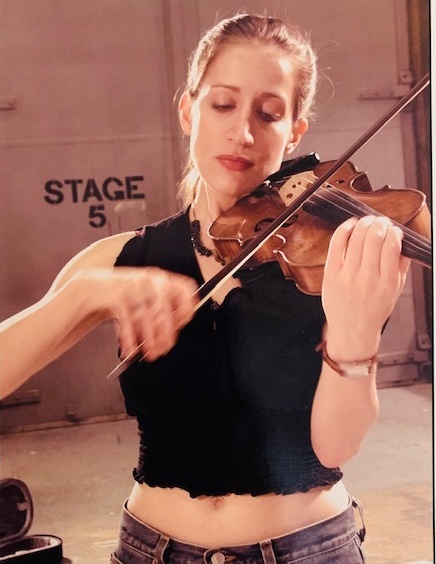
TRANSCRIPT
[INTRODUCTION]
[00:00:01] ANNOUNCER: You are listening to the Radical Intimacy Podcast with a sex and intimacy coach, Zoë Kors.
[00:00:14] ZK: I’m just going to say it. I’m a big fan of Sex and the City. Do I know it’s problematic on many levels? Yes. Do I know there’s no way Carrie could support her shopping habit on a freelance writer's salary? Yes. Do I think Carrie Bradshaw has always been a little prudish for a sex columnist and judgy about sexual expression? Absolutely. Have I always been bothered by the show’s whiteness and lack of diversity on many levels? Yep. And yet, I have sustained such an indelible relationship with Miranda, Carrie, Charlotte, and Samantha, that I often have reruns playing in the background of my work from home situation.
As a native New Yorker, part of what I identify with is the city itself. I’ve been in Los Angeles since 1991. A good seven years before the series premiered on HBO. I was a newly single mom of a one-year-old in 1998 when the show brought me back to my roots and reminded me who I am. Each of the main characters represents a part of myself. I was such a devoted fan that when the first movie came out, I needed to go see it in the theater alone. I felt possessive and personal. I had no room for anyone else’s relationship with them. I wanted to have these four women all to myself.
You can imagine my delight when I ran into Chris Noth in 2012 at the legendary club, Fais Do-Do, on West Adams in Los Angeles. We were each there with large groups of people to see Vaud and the Villains. I approached him at the bar and said, “My BFF would never forgive me if I didn’t ask you to dance.” His response was lovely and appropriate. He said, “Ah! I’m flattered. But I’m here with my wife and I don’t think she would appreciate it.” Mr. Big couldn’t have left a better impression on me that night. Flash forward to the allegations against him for all kinds of bad and potentially criminal behavior. I was disappointed and outraged to have to add him to the list of Hollywood’s perpetrators of harassment, abuse, and sexual violence.
Meanwhile, one of my fellow members of an author support group on Facebook turned out to be the woman who published an essay I read in February 2021 about her experience as Kristin Davis’ stand-in on set. At the time, she told the story of an unnamed A-list celebrity. But in December, after Big died in the opening episode of And Just Like That, several women stepped forward with allegations. Heather Kristen revised her article to name the A-list celebrity as Chris Noth. Heather Kristen has written for Glamour, The Independent, HuffPost, Salon, and Slate, and has been interviewed on Latino NPR, various magazines such as Elle and O by Oprah.
She’s worked many jobs including Park Avenue nanny, extra on films, subway busker, and cocktail waitress. A graduate of the New School University, Heather’s most proud of being a mom, a violin teacher, and a Girls Write Now mentor for a decade. Girls Write Now is a nonprofit organization serving girls and gender expansive youth who attend New York City public schools and are from historically and systemically underserved communities. Girls Write Now was recognized by the President’s Committee of the Arts and Humanities as an Outstanding Arts Program for Youth. Michelle Obama presented them with the Coming Up Taller Award. Miz Magazine called the Girls Write Now ‘Mentees: The Future of Feminism’.
Heather is in the process of writing a memoir, The Stand-In: How I Stood in For the Stars and Never Myself and Others Until One Day, which is based on her viral essays about working on Sex and the City. I’m super excited to welcome Heather to the podcast.
[INTERVIEW]
[00:04:26] ZK: Heather, thank you for being here and having this conversation with us today on the Radical Intimacy Podcast.
[00:04:32] HK: Thank you so much for having me.
[00:04:34] ZK: I’m really excited. The first thing that I want to just sort of put out there is that you and I are both essentially really big fans of Sex and the City. It’s definitely – is it fair to say that your overall experience was a positive one?
[00:04:52] HK: Yes. I had some of the best days in my 20s on that show, working on that show. reading the script, hanging out with Sarah Jessica Parker. She was so kind. One time she even gave me flowers and Kim Cattrall always was there to listen to a story about my mom and my sister anything that I was going through, and Kristin Davis even gave me a dress to wear. That was one of her old dresses, a beautiful silk butterfly designer dress, and I still have it today. I haven’t worn in a while during the pandemic, but I do dream of wearing it sometime soon.
[00:05:30] ZK: Yeah. I mean, it sounds like the dream come true to be working and what you did with that team.
[00:05:36] HK: Yeah. It was also very much like working with a family. The hours were long, sometimes you would work 60 hours a week, sometimes you would work 20 hours a week. But at the end of the day, they were there to support you and to share a story about what was happening in your love life or anything else that was going on.
[00:05:56] ZK: Yeah. I mean, we hear a lot about the film industry and the sort of level of intimacy that happens. My husband is actually on the other side of the camera, and he’s made lifelong friends on long days of shooting, day after day, week after week. And in your case, year after year. Can you just explain what a stand-in does?
[00:06:22] HK: Yes. A stand-in is an integral part of the show, because they’re in the background, and they’re there for the lighting. Without them, the cinematographer wouldn’t be able to set up the scene. Usually, when the cinematographer is checking for lighting, he’s checking for shadows on your face, or your shoulder in the – what they call the first team, which is the stars like Sarah Jessica Parker, would be in hair and makeup, getting a wardrobe on, or talking to the director and getting some notes from him or the writers.
[00:06:53] ZK: The stand-ins go and literally stand in place of the stars. And you worked on the show for the entire series, yes?
[00:07:06] HK: I was there for four seasons and show [inaudible 00:07:08] seasons. I first began as an extra, and then a couple years into it. I think it was the second or third season that I joined as a stand-in. I sort of felt like I got promoted in a sense, because they had seen me on set and knew that I was in a sense, well behaved, and quiet, and abided by the rules that were instructed upon all of us.
[00:07:30] ZK: Yeah. So they moved you up to the stand-in position for Kristin Davis’ stand-in.
[00:07:36] HK: And they had the original stand-in left or went on to other things, and then they asked me if I would like to be her stand-in. And of course, before that, I was constantly asking the casting director if there’s an opening, I would absolutely love to be the stand-in, because I knew that it paid just a little bit more. I think it only paid about $18 an hour. It’s not like a huge amount of money. But as an extra, I think I was earning around $14 an hour. It was a bump in pay. With the additional hours, I knew I would qualify for Screen Actors Guild health insurance, which was great. I never had health insurance.
As a child, I grew up poor in New York City with my single mom and twin sister. We grew up on welfare and didn’t see the doctor for most of my childhood. One of my dreams, besides working with Sarah Jessica Parker, was having health insurance and being able to support myself as a working actor.
[00:08:32] ZK: Yeah. Wow! That’s a whole different perspective. Your own motivation, right?
[00:08:39] HK: A steady job, also, which is what I was also looking for. After trying for a couple of years in my early 20s to be a super successful actress, I said, “You know what? I’d rather just be in the business, do something that I love, be with people that are creative, and cool, and do this steady work and see where it takes me.”
[00:08:59] ZK: Yeah. Can you tell us just a little bit about the moment when you are in front of the camera?
[00:09:07] HK: Oh, yeah. So, that was after all the dark moments, which was very surprising. I think near in the third season, I started bringing my violin into set to Silver Cup Studios when we would film in Queens, because I was trying to – I thought, well, I need to keep doing my own art and not just constantly being a stand-in for other people. When we would have a lunch break or dinner break, I would go to another sound studio and practice.
I think Sarah Jessica Parker, who was a producer on the show, and as a producer on the show, must have heard me playing because shortly thereafter, she had the casting director invite me to play with my string quartet in season six, which was called ‘The It Factor’, and it’s where Sarah Jessica wears that beautiful Oscar de la Renta pink dress and Mikhail Baryshnikov has a tuxedo and they’re running to Lincoln Center. Me and my string quartet were set up to sit right outside Lincoln Center and serenade them. She did a little waltz, and then she fell. She had that scene where she fainted. She’s like, “Oh! This romance is too much, I can’t take it anymore.” And then they go to McDonald’s.
It was such a lifelong dream, honestly, to finally be heard and seen. I really loved that moment.
[00:10:25] ZK: That’s amazing. Back up a little bit. You’ve written about a couple of incidences that were really uncomfortable. I think you just referred to them as dark. I’d love for you to just speak to that here, in case anyone has not read your article. What happened?
[00:10:45] HK: Yeah. So, there were a few. I think, sadly what happens when you get really familiar with a group of people, they can sometimes take advantage of your easygoing attitude. They think, “Oh! She’s one of us” or “She’s one of – we can say derogatory things to this person, and they will either be offended or they’ll think it’s funny.” But they started out very sort of – rumors would happen, where they would say, “Oh! Heather gave a blowjob to one of the guys on a crew site,” which was extremely hurtful to me. Because at that time, I actually, I was 26, I think. I had never even given a blowjob, because I had been homeschooled and raised in this religious household. That was something that I just – I wasn’t, I was hardly dating anyone. It was just like such a thing to say to – It was a thing to say to hurt me. And yeah, it was very painful. And then they started saying that I had had a boob job, which I didn’t. Then they said, I had a big nose, which I do have a big nose. And then –
[00:11:51] ZK: For listeners who can’t see right now, you have a beautiful nose. You’re a gorgeous woman, like ridiculous. Yeah.
[00:12:00] HK: And then when Chris Noth would get on to set, he’s a very big, large man, very bombastic. He would, in the beginning, sort of bump into me, and it felt like that it was on purpose, that the little strip of tape that I stood on, it was a fluorescent piece of tape that they put down for the actor to stand in the specific spot so they can set up the lights. The stand-in usually has to stand there for like half an hour. The stars are gone off to get their hair and makeup done, but he like comes barreling on set and he’s just like sort of bumps into me, pushes me. This happened to other stand-ins also. It wasn’t just me. I think he really knew his power, and he wanted us to know about his power. I really think it was just about the power.
We’d sort of like move an inch, and he would just be like, he won’t even like look at us. He would just be like, “Ugh! What are you doing here?” It’s our job to stand there. Like, that is what we’re required to do. Then it started building to, I guess we weren’t giving him the attention he wanted. He said that really the horrible comment to the other stand-in. This is after a while of these kinds of things happening. “I want that one tied up, gagged and brought to my trailer.” After that, I was like, “You know what? I can’t take it anymore.” I squared my shoulders, and I looked at him directly and I said, “This is our space. This is my space. This is her space.”
He went, “Whoa, there little lady.” He didn’t even know my name. I mean, that was the other thing that was so offensive is that, to him, I was just a thing. I wasn’t a person. I wasn’t a woman doing my job. Even if my job is tiny and small, I’m still needed. I’m still a necessary component of the show. It was pretty devastating to the point where, after a while, I quit and ended up auditioning for the Royal Academy of Dramatic Arts, and gaining entrance and doing Shakespeare that summer.
But the other funny thing about this job is that, even though I would quit, I would keep coming back. Because when I came back after the Royal Academy of Dramatic Arts, I came back in August of 9/11. And then September 9/11 happened, I couldn’t get a job as a Shakespearean actress. They called me and they were like, “Could you come back because the other stand-in isn’t working out?” They didn’t like her or she’s just not fitting into the set. I was like, “Of course,” because I really did not have any other choices at that point.
[00:14:48] ZK: One of the things that we do here, at the Radical Intimacy Podcast, is we talk about the nuance of our experience. It’s not black or white. These people that worked on the series were your family as you said. There’s so much good, and there’s so much love and there’s so much honesty.
[00:15:15] HK: Yes. Also, Sarah Jessica Parker, we would all sit together if we were filming at Silver Cup Studios and have lunch together. I definitely felt like, with the stars, we were on an equal footing. I felt like the women had our backs. I felt that Chris Noth did not. Also, I have to say, the other men who worked on the show were total gentleman, Kyle McLachlan, upstanding, good person.
[00:15:45] ZK: You must have had a lot of exposure to him in your role, in your specific role.
[00:15:51] HK: Such a sweet person, and very – I mean, professional to the core.
[00:15:55] ZK: Yeah. It’s understandable how you would go back. It’s complex. It’s not all bad, categorically bad or abusive and it’s a good job.
[00:16:10] HK: Mm-hmm. It’s a steady. You’re going to get pays. Of course, there was always the hope that, “Oh! I would get – maybe they would toss me a line here or there. Maybe I’d land my big break or something.
[00:16:23] ZK: Yeah, sure. Of course.
[BREAK]
[00:16:28] ZK: I want to give a quick shout out to a friend of this podcast, Coral, the first sexual wellness app designed for everyone and personalized for you. At some point or another, everyone needs help sustaining real intimacy, which is why Coral created an easy-to-use. science-based and trauma-informed app to help people feel closer and communicate more effectively every day. Full disclosure, I am Coral’s resident sex and intimacy coach, but that’s part of why I feel so confident about recommending it, especially to couples who want to feel more connected.
Connection is one of the most common goals I hear from people in my practice. Over time, life gets hectic, our connection to each other takes a backseat to a myriad of responsibilities and pressures. We learn how to invest in our fitness, finances, and even our mental health, but almost no one talks about how to allocate resources to nourish our connection to each other.
Coral puts the focus back on your intimate relationship. You can even invite your partner into the app and use it together. Coral connects a private space that guides you and your partner towards healthier communication, takes the stress out of conflicts, and makes communication fun again. Coral’s countless guided exercises and meditations, created by moi, literally walk you through an intimate, connective experience in real time.
You can download Coral from the App Store today to get started. Join the hundreds and thousands of people already maintaining fun, healthy and deeply connected relationships with Coral.
[INTERVIEW CONTINUES]
[00:18:19] ZK: So then the series ended, right and you moved on and I’m really – I can’t wait to talk about what you’ve done since. But I just want to flash forward so that we can kind of complete this part of the conversation. Then, when there was an announcement that there was going to be And Just Like That, sort of a revival of the series, updated. In February, you published an article about your experiences, with the Independent. And you didn’t name Chris Noth by name, ‘an A-list celebrity’?
[00:18:55] HK: Right.
[00:18:56] ZK: How was that received? What were some of your concerns or even the sort of risks that you took to publish that?
[00:19:05] HK: I had been writing about this for most of my life in my journals, in my diaries, and telling people, and writing articles about it, and submitting it to magazines. After the show ended, Sex in the City ended, and I left the show, I went back to school, to the New School University to get my BA at age 30. I became a freelance writer, and I started publishing essays and sharing the story. The editors for many years would not publish the piece because they said, “It’s not timely, the show ended, it doesn’t matter." Also, my experiences are pale compared to what other women have been through.
One of the big Hearst Magazines actually bought this essay, and then sat on it for, I would say about a year. This is before And Just Like That was announced. I thought, “You know what? I am so tired of not having my story told and shared that I am going to go to the Independent,” which I had never heard. It’s a British newspaper. But someone was like, “Oh! You should just go to one of my writing instructors,” who was a great mentor of mine that said, “You should submit here.” I submitted it. Within three days, the editor published it.
I went back to the big Hearst Magazine publication, and I said, “Oh, this has been published” and they then published it like a week or so after. And then another publication, Huffington Post published another piece, and then it just started snowballing, and then everybody wanted to hear my story. I thought that was great, and I told that story in February, because I’ve been telling it my whole life. I did not want to hurt the production. I wanted it to go forward. But I also wanted people to know what this man was capable of, and I didn’t think it was fair. I think that women have been silenced for way too long and it’s time for us to stand up and say, “This is enough.”
[00:21:11] ZK: That’s right.
[00:21:12] HK: And then more women came out in December, and I was appalled, and shocked and solidarity matters. I have to stand up for others, because if I don’t stand up for others, nobody’s going to stand up for me.
[00:21:28] ZK: Yeah. I mean, this is one case where the comments that he made were actually reflective of his behavior, and criminal behavior. I mean, we’ll see what happens and how this plays out. But it’s not just verbal. I mean, creating an unsafe workplace because of comments that you make, and the attitude that you embody on set and wielding power in that way to disempower others is not acceptable. In this case, there was seriously violating behavior that, I guess, I have to say allegedly followed. Can you share your reaction to the women, Sarah, Jessica Parker, and Cynthia Nixon, and Kristin Davis, their statement that they made, when all of these allegations against Chris Noth surfaced?
[00:22:25] HK: I was very happy that they posted that joint statement, saying that they – I mean, I’m just paraphrasing, but it said that they support the women who came forward, and that was big. That was good.
[00:22:41] ZK: Huge. And then proceeded to edit him out of the final episode, which I guess he was going to come back in some way, shape, or form from beyond. Yeah, I was really – as a big fan of all of them, I had to say that I was so relieved for them not to – I mean, I thought they were incredibly articulate, professional, and succinct.
[00:23:09] HK: Also, HBO reached out to me and made a statement and said that the things that had happened 20 years ago were disappointing. I think the rest of it said they were going to make – they would strive to have their sets safe. I definitely appreciated that acknowledgement.
[00:23:29] ZK: Awesome.
[00:23:29] HK: That was that was printed in the Glamour Magazine piece that I wrote in February.
[00:23:34] ZK: Okay, great. You can check the show notes I’m going to link to the essays that you wrote, and the things that have been published, along with other things. I want to touch on the sort of – this as one example of this power dynamic that happens. I mean, starting with Harvey Weinstein and the Me Too Movement. It seems to me so ubiquitous, and I live in Los Angeles, so I’m kind of in the middle of the entertainment industry. But it seems to me like it’s such a common power dynamic on set. I’m curious if you have any ideas about like why that is? Why is it that we keep hearing these stories?
[00:24:28] HK: I think that it is systemic across all industries. If we look at politics, and I think the only reason why we see so much of it being broadcast in Hollywood is because the media picks it up, and it’s glamorous, beautiful people. But three in five presidents, and two sitting Supreme Court justices have been accused of abusive behavior. It’s everywhere. I just think it’s more talked about in the media because it’s Hollywood people. But even on Instagram, so many people reached to me from across the pond. In Ireland, this girl wrote to me and told me about how she has a job in retail and her boss would – they’d be standing at the desk, and he’d reached behind her and touch her butt while the customer is talking to her. It’s nothing sexual. It’s like total power trips.
[00:25:20] ZK: Its behavior that’s designed to disarm, right? Disarm and disorient.
[00:25:24] HK: Right. Yeah. Mm hmm. It’s also – it’s directed at the marginalized people, people that don’t have a voice, that need their job, that are scared of losing their jobs if they speak up. Often like, I didn’t have much of an education. Like I told you, it took me until I was 30 to go back and get my Bachelor of Arts, because I had a traumatic childhood of – lots of things that happened. I really was trying to clean myself up, and make myself sparkly and clean and look good and maybe I’d land a show or something. But there’s a lot of people out there that aren’t as lucky or aren’t as privileged as I am to be able to do that. To be able to speak articulately, that can’t speak the language.
[00:26:14] ZK: Yeah. Heather, what advice do you have for someone who is disempowered and harassed in the industry or beyond anywhere? What are ways that they can take care of themselves, or speak out, or whatever? What do you have to say to people who are experiencing this?
[00:26:32] HK: I think that people should do what Anita Hill wrote about in her latest book, Believing: Our 30 Year Journey To End Gender Violence. She says, number one, acknowledge that it happened. Number two, investigate and ask victims and survivors of sexual harassment, how to develop effective solutions. And number three, stop the retaliation when survivors come forward. I think also, don’t wait 20 years to tell your story.
[00:27:02] ZK: Yeah. Those are like a moment of reverence for Anita Hill and everything that she has experienced and stood up for. Those are big; stop the retaliation. That’s a great thing and it’s not necessarily in the power of the victim or the survivor. I’m curious, if you could look back and talk to your younger self in that situation, and you actually did speak up, but what would you say to yourself in that situation?
[00:27:35] HK: I don’t know. Because I didn’t know I had any other options. I didn’t know who to go to. There wasn’t HR on set. There really wasn’t anybody that I could speak to, at that time. Now, in hindsight, I would go to my union, and I’d shout it loud and proud. But there’s also a stigma of you don’t want to be the snitch. You can be replaced so easily.
[00:28:01] ZK: Yeah. You don’t want to be the troublemaker.
[00:28:03] HK: Yeah. You don’t want to be the troublemaker. You want to be nice, pretty, compliant, silent. Yeah, I mean, that’s your job is to be silent as a stand-in. It’s not to speak.
[00:28:15] ZK: Yeah. Right. The job description right there is like, keep your mouth shut. I think that it’s the fact that there’s a movement, the Me Too Movement, right? The power of that movement is creating more avenues for people to come forward and speak about their victimization. At least it’s a conversation that is not new. Right?
Heather, a lot has happened since your work on Sex in the City. You are married, you have a couple of daughters, you’re a mama and you are involved with an organization called Girls Write Now. I’m really curious to hear about your work with this organization, and what you do and how that sort of serves your empowerment of young women, young people. Can you tell us a little bit about Girls Write Now as an organization and then what you do?
[00:29:23] HK: Yes. Girls Write Now is a nonprofit that advocates for girls and gender expansive youth that come from underserved communities with limited resources. What we do at Girls Write Now is mentor the girls, and meet with them for an hour or so every week, and also have monthly workshops where we explore a different genre, like playwriting, or memoir writing or journalism. But it also goes beyond just the writing and the reading of different materials.
It’s also a very personal exploration of my story, of their stories, of us sharing the stories that connect us through trauma, but also do not define us. For instance, the girl that I mentored for four years, who’s now working in publishing, and in her 20s, she shared things about her family that she couldn’t share with anybody else. I opened up about things that happened to me that I thought was appropriate for a teen girl to know about. Through us telling our stories, we were able to really see each other, and grow, and learn, and become more powerful and not afraid to share our stories.
[00:30:39] ZK: It’s so important in witnessing each other and being able to tell the truth and being able to express. I can imagine that the work that you do mentoring these young people, helps them to define who they are, and find their voice, and be able to express and be truthful and shape their experiences in a powerful way.
[00:31:07] HK: I think there’s such a culture of silence, and especially young women are taught not to tattle and to do what the patriarch says to do. It’s very important that we break down these walls of silence and to tell our stories. Also, I think another thing about when we do tell our stories, I think people should believe the stories and hire the people that are telling the stories, not say, “Oh! Well, she went through this horrible thing, and I can’t employ her anymore.” There shouldn’t be that retribution.
[00:31:45] ZK: Heather, it feels like everything that you’ve experienced in your life has led you to where you are right now. Like it’s all productive. It’s all for a reason.
[00:31:56] HK: I believe that these challenges created changes in my life. Without these challenges, I would not have changed and become the person I am today.
[00:32:08] ZK: Who is that person? Who are you?
[00:32:12] HK: A storyteller. A person who is ready to share the truth, and to listen to others and help others share their stories.
[00:32:21] ZK: Beautiful. Heather, can you fill us in on where we can find you? I mean, we’ll put all the links in the show notes. But what is on the horizon for you?
[00:32:34] HK: Well, I’m working on a memoir right now called The Stand-in. I’m very excited to be working with Heather Amy O’Neil at Sackett Street Writers’ Workshop. I just finished writing 50 pages of it. It’s a book that explores what it was like to work on Sex in the City, having a parent with mental illness, and also being homeless as a child. It’s for anyone who has ever felt sexualized, or marginalized, and wants to transform and know that they can break out and become something that they never thought possible. I do believe that I’m living proof of that.
[00:33:18] ZK: Beautiful. I’m going to end this episode the way I end all of my episodes by asking you Bernard Pivot’s questions from his show, Apostrophes. You game?
[00:33:32] HK: Yes, I love this.
[00:33:36] ZK: Okay. What is your favorite word?
[00:33:38] HK: Yes. Yes, I can do this. Yes, I have a voice. Yes, I belong. Yes, I have a choice.
[00:33:45] ZK: What is your least favorite word?
[00:33:48] HK: No. No, that didn’t happen. No, you can’t. No.
[00:33:53] ZK: What turns you on Heather?
[00:33:56] HK: Besides my husband of 16 years, I really do love a medium rare, juicy burger from DuMont burger in Brooklyn.
[00:34:05] ZK: That’s awesome.
[00:34:06] HK: It’s totally orgasmic.
[00:34:09] ZK: Amazing. What sound do you love?
[00:34:12] HK: I love playing the violin. I’ve been playing since I was a little, little kid and I love the songs of [inaudible 00:34:17]. I love to play it.
[00:34:19] ZK: What sound do you hate?
[00:34:21] HK: The sound of a jackhammer in the morning that drives me crazy.
[00:34:29] ZK: Yeah. You live in New York too, so it’s jackhammerville. Heather, what’s your favorite curse word?
[00:34:36] HK: My favorite curse word is absofuckinglutely. I’m taking the narrative back on one of Mr. Big’s famous phrases, and I do actually say it all the time, except not in front of my kids.
[00:34:48] ZK: What profession other than yours would you like to attempt?
[00:34:52] HK: I would love to be a jazz singer. That’s like a fantasy. I just think it’d be so much fun.
[00:34:58] ZK: You and me both.
[00:34:59] HK: In any tiny little club. Someday when I’m super old.
[00:35:04] ZK: Yeah. What profession would you not like to participate in?
[00:35:10] HK: Social work. I have dealt with a lot of social workers in my childhood, because when we were homeschooled, they would come and visit and it was very scary. I have had to deal with them with a certain family member recently, and they have one of the toughest jobs ever, because they have to listen to everybody and navigate really difficult situations. I have tremendous respect for the work that they do. But I could not do that work.
[00:35:35] ZK: Wow! Heather, if heaven exists, what would you like to hear God say when you arrive at the pearly gates?
[00:35:44] HK: That I help people be less afraid, and less alone and to share their story.
[00:35:49] ZK: So beautiful. Is there anything else that you’d like us to know?
[00:35:55] HK: I kind of wish people would choose kindness and not words that pull people down, especially on jobs. Lift people up. Don’t decide to tear them down. It is a choice and a lot of people have that power.
[00:36:12] ZK: Awesome. Heather, thank you so much once again for coming and talking to us today.
[00:36:18] HK: Thank you. This was an honor.
[00:36:21] ZK: We’ll keep watching for you.
[00:36:23] HK: Thank you.
[00:36:23] ZK: Thank you.
[END OF INTERVIEW]
[00:36:25] ANNOUNCER: Thank you for listening to this episode of The Radical Intimacy Podcast. We are committed to facilitating courageous conversation about things that are hard to talk about. To support what we do, please subscribe, review, and refer us to your friends. To connect with us directly, visit theradicalintimacypodcast.com. To learn more about Zoë, visit zoekors.com. You can buy Zoë’s book, Radical Intimacy: Cultivate the Deeply Connected Relationships You Desire and Deserve, wherever you buy books. You are worthy of love and belonging. You are enough. We see you. We got you. We love you.
[END]

